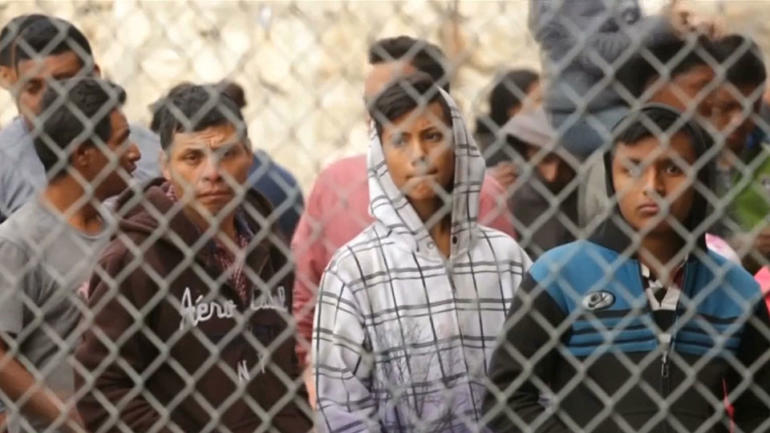New U.S. documents reveal thousands of detained migrant children reported that they were being abused. This raises serious questions as to the government’s ability to protect children in its custody.
CGTN’s Dan Williams has more on that from the border.
A new migrant facility opens in El Paso, Texas. This camp will be able to host some 500 people.
Authorities hope the new tent city will help them better manage migrants—amid concerns about the treatment of asylum seekers.
Three Guatemalan children have died in U.S. federal custody in the last five months. Those deaths highlight both the treacherous journey that many Central American children experience in their attempts to enter the United States as well as the health issues that can arise while they are in custody.
“We are killing children in this detention process and arrest,” said Fernando Garcia, with the Border Network for Human Rights. “If we don’t do anything urgently, if we don’t change strategy, then we will, unfortunately, see more deaths of children, of youth, adults because this strategy is an aggression, a war against migrants and families.”
Documents from the U.S. Department of Health and Human services also paint a grim picture.
They say there were 4,500 complaints of sexual abuse and harassment of migrant children in U.S. custody filed between 2015 and 2018.
Norma Chavez-Peterson of the American Civil Liberties Union believes there needs to be more transparency in the camps: “The number one concern: the detention conditions. Inside these temporary border patrol facilities really don’t have any regulation. Lawyers don’t have access to them. Community organizations don’t have access to them. And they are like a black hole of transparency.”
Before reaching the U.S., most of the migrants pass through shelters dotted along the Mexican border. Many of these facilities depend on charity donations.
There are almost 30 shelters across Tijuana offering migrants the chance to rest, to get help and advice before journeying on. But for those that have already been returned from the U.S. border, the uncertainty continues.
Dermi Magdalena Garcia Perez is a mother of three children. She left Honduras following death threats to her and her family. She says she was humiliated while attempting to claim asylum.
“I told him I needed their help because my case was very serious and he said no all you Honduran people are all liars,” Perez said.
She said her right to asylum was not respected.
Many of those in migrant facilities tell stories of tragedy and danger. But there is an increasing concern that some of the abuses they report — are also occurring on the U.S. side of the border.
 CGTN America
CGTN America
